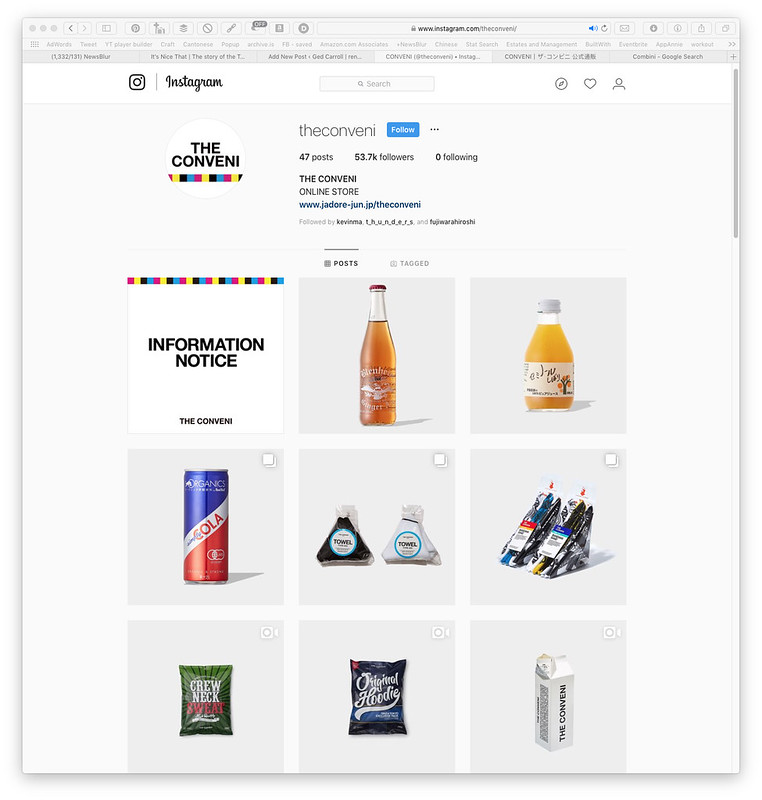KAWS’s Dark Take on Mickey Mouse | Anatomy of an Artwork | Sotheby’s – I have been a big fan of KAWS work – in particular the stuff by KAWS done under the OriginalFake name. KAWS OriginalFake was where art and streetwear met. KAWS did some great collaborations under the OriginalFake name. I wore my Porter Tokyo x OriginalFake wallet to death in the end. KAWS has abandoned the label and is now focusing on his art pieces. Great collection of stuff here going on auction in Hong Kong. More luxury related content here.
“Become the leader in our industry” is not a strategy | Quartz – how many times have I seen this on briefs….
New Balance is finding trendsetters with AI and giving them shoes | Fast Company – interesting seeding campaign
The economy is booming, your salary is not: Blame the decline of unions | FastCompany – interesting that this appearing in Fast Company whereas in the past these ideas would have been considered the work of a left wing crank
US airlines are struggling to make money from China’s travel boom-Sino-US – looks like an ideal opportunity for Trump’s trade war
Don’t Pretend Facebook and Twitter’s CEOs Can’t Fix This Mess | WIRED – the interesting this is that this is written by Ellen Pao; who went through hell when she did this at Reddit. Good read. It could be a slippery slope however, what happens when whats fine in the US isn’t fine in Europe, or the middle east or Asia?
Saudi Arabia banned from advertising reform agenda on British TV | World news | The Guardian – how would this affect other country ads. Could Mexican Tourism Board ads be seen to be masking the issue of narco-violence? This feels like a slippery slope in many respects
If you have a Yahoo account your emails have probably been scanned to figure out what you buy — and they may have been read by employees of the company – so lots of viagra and other spam email products in the vast majority of seldom opened accounts
Luxury’s Unofficial Poster Boys | The Daily | Gartner L2 – You don’t need a brand ambassador to reap the rewards of influencers. In China, TFBoys’ wholesome act has become a cultural and marketing juggernaut, though not always via official partnerships.
The ugly truth about why I left BBDO China after just a year | Advertising | Campaign Asia – not terribly surprised, even in a tier one city like Beijing
The convergence of AI and nanotechnology — Nano Magazine – machine learning work on image processing has improved microscopy. Machine learning is also being used in chemical modelling which is an important part of modern chemistry
Facebook, Twitter and violence are linked | The Japan Times – correlation certainly, though less convinced about causality. Technology certainly facilitates, communication and organisation but there are other substitute real world comms platforms like BBM, email etc
One yen camera: we bought an extremely cheap camera off Yahoo! Auctions and tested it out【Pics】 | SoraNews24 – really interesting article on his experiences, particularly how the smartphone camera metaphor threw him off on his first shots
FACT CHECK: Did Vladimir Putin Rescue an Injured Donald Trump from the Viet Cong During the Vietnam War? – No. But its hilarious to think that this even got on to the internet
Vietnamese website taunts Chinese drama fans with South China Sea quiz | Reuters – clever trolling, though it does remind me of the way Saudis were trying to undermine Qatari sports channels through rampant piracy
The truth about ‘Snapchat dysmorphia’ | Dazed – is Snapchat really driving cosmetic surgery?
Norte :: Itaú – Kidsbook Collection – great use of Canvas mobile content format

